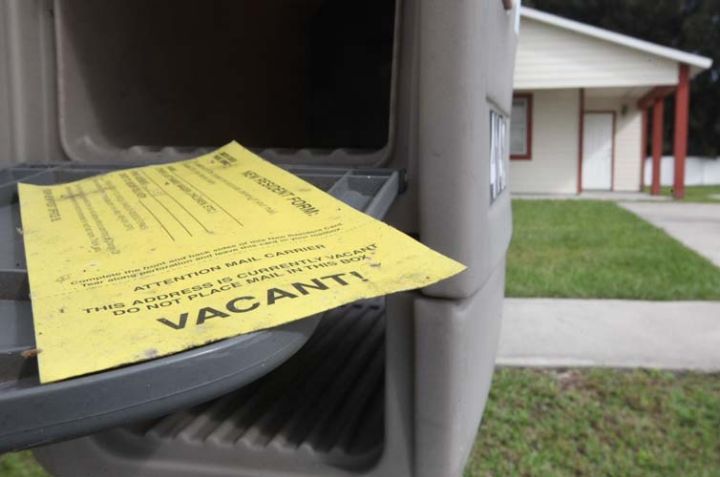INDIAN RIVER COUNTY — The story of Habitat for Humanity in Indian River County is one of heart-rending inspiration made possible by the best inclinations of people from all walks of life, so it’s particularly disturbing to see a dramatic upswing in Habitat foreclosures.
In 2012, the organization built 20 new homes but filed eight foreclosure lawsuits. In the two decades prior to 2012, Indian River Habitat for Humanity foreclosed on a total of five homes out of almost 300 built.
“We prefer not to go this route with foreclosures, but, unfortunately, we have no choice,” said Habitat President Andrew Bowler.
In the past, a homeowner behind on payments would give the house back to Habitat and the agency would sell it, then give the county – which provides second mortgages on Habitat homes – a partial payment of that second mortgage, and the county would accept that.
The rise in foreclosures is prompted by Habitat’s not being able to afford the partial payment because the resale value of a home is often considerably less than when the home was purchased in better economic times.
The foreclosure process forces the county out of its claim on Habitat, which is already taking a loss on the resale.
“We think Habitat should share in the loss with us and give us something back,” said Bob Keating, director of the county’s Community Development office, which oversees the disbursement of state money provided by the State Housing Initiative Partnership.
“That arrangement forces us to put cash out on a loan that is not our loan and we can’t keep doing that because like most nonprofits we’re suffering financially,” said Bowler. “If we paid the money the county wants on just the 2012 foreclosures, we’d have to put out more than $125,000.”
But the foreclosures come with their own set of daunting problems: protracted court battles with people Habitat for Humanity once helped, income loss for the nonprofit from the lengthy court process, an increase in lawyers’ fees, and, worst of all, crime in Habitat neighborhoods where abandoned homes attract drug dealing and sexual activity.
A Vero Beach 32963 review of the eight 2012 foreclosure cases, involving seven homeowners, reveals a list of headaches for Habitat: More than one homeowner disappeared, requiring the nonprofit to spend time and money on a long, fruitless search for them.
Another homeowner filed for bankruptcy at the end of the foreclosure process, throwing her case into federal court and stopping the foreclosure.
When she failed to meet the bankruptcy requirements, the case was thrown out of federal court, but months were lost and a second foreclosure lawsuit had to be filed.
One homeowner enrolled in a state program (Florida’s Hardest Hit) to get financial help and stop the foreclosure, but she was kicked out when she failed to turn in paperwork.
Yet another homeowner inexplicably went into foreclosure rather than sell her home for a profit.
She owed about $14,000 on her mortgage and could have sold the home for about $55,000 but walked away, instead.
But the most maddening foreclosure involved a defendant dying and leaving behind more than 40 possible heirs.
Since all of them could have a claim to his estate, Habitat had to find them and try to get releases. In fact, the case got so complicated that the court appointed a guardian ad litem to speak for the house, which, by itself, stalled the foreclosure for months.
“We don’t want to be involved in these foreclosures and we engage in a lengthy process of counseling with the homeowners to avoid them. But they happen,” said Bowler. “Then, we face more downsides.”
The worst of these situations occurs when the homeowners leave, and the abandoned homes attract crime.
Homeowners and maintenance workers in Habitat’s Grace Grove neighborhood in Gifford, according to court documents, say that three abandoned homes “are used as a place to have sex and use illegal drugs … by people from the nearby (county Housing Authority) area called Orangewood.”
The homes have recently been secured, said Bowler.
Furthermore, he expects a few of the 2012 foreclosure cases will be dismissed and will end happily for the people Habitat has been committed to help.
In the meantime, said Bowler, he hopes people won’t lose sight of the tremendous good accomplished by Habitat.
“Remember that because of Habitat for Humanity, the hard work of the home buyers and the generosity of our volunteers and donors – most of whom live in the 32963 zip code – we have 290 families living far better off than they ever could have.”

